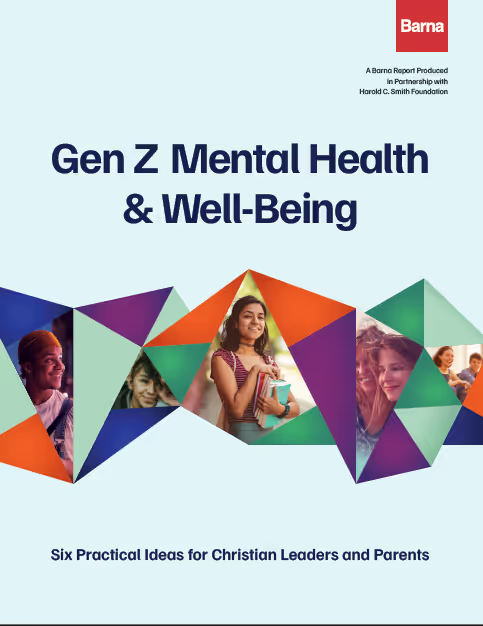The Respect Generation Gap

The Respect Generation Gap
Molly Hughes, LPC – The Wings Center at EagleRanch
Mom: “You have to respect your elders and people in authority over you.”
Teen: “I’ll respect them as soon as they respect me.”
Dad: “What do you mean, ‘as soon as they respect me?’ That’s not how it works.”
Teen: “What do you mean that’s not how it works. That is exactly how it works.”
Respect, or the lack thereof, is a common theme that pops up regularly in family counseling sessions. The more I sit with families, the more I see a generation gap when it comes to respect. This is especially true among families where Gen X parents (born 1965-1980) are raising Gen Z children and adolescents (born 1997-2012).
Respect, according to the Oxford dictionary is, “due regard for the feelings, wishes, rights or traditions of others.” If the meaning of respect is generally agreed upon by different generations, then why is the carrying out of respect such a battleground between generations?
Here’s the thing:
Gen X parents tend to view respect as something that is unconditionally due to elders or those in authority. In their eyes, respect is a one-way street that may or may not be reciprocated. For example, “I respect my teacher because she’s in a position of authority.”
Gen Z children and adolescents tend to view respect as something that is earned, not given unconditionally. In their eyes, respect is a two-way street that must be reciprocated, or it will be lost. For example, “I will respect my teacher if she respects me.”
Considering this generation gap, it’s important for Gen X parent to know that they can choose to try to strong-arm their Gen Z children and adolescents into respect; however, if they do, they will most likely find themselves frustrated and their kids exasperated.
So, what are parents to do?
- Understand we cannot demand our kids to feel respect for another person, but we can teach our kids how to act respectfully toward another person.
- We can teach them what respectful behavior looks like—not talking back, not raising their voice, paying attention to the other person, and so on.
- We can say something like, “I’m not asking you to respect your teacher, but I am asking you to treat her respectfully.”
- We can give consequences when we see our kids acting disrespectfully in order to train them toward more respectful behavior.
- We can have healthy dialogue about why our kids feel disrespected and validate their feelings.
In these ways, we can address the issue of respect without creating an unproductive and oftentimes divisive argument between generations.
The Respect Generation Gap
Molly Hughes, LPC – The Wings Center at EagleRanch
Mom: “You have to respect your elders and people in authority over you.”
Teen: “I’ll respect them as soon as they respect me.”
Dad: “What do you mean, ‘as soon as they respect me?’ That’s not how it works.”
Teen: “What do you mean that’s not how it works. That is exactly how it works.”
Respect, or the lack thereof, is a common theme that pops up regularly in family counseling sessions. The more I sit with families, the more I see a generation gap when it comes to respect. This is especially true among families where Gen X parents (born 1965-1980) are raising Gen Z children and adolescents (born 1997-2012).
Respect, according to the Oxford dictionary is, “due regard for the feelings, wishes, rights or traditions of others.” If the meaning of respect is generally agreed upon by different generations, then why is the carrying out of respect such a battleground between generations?
Here’s the thing:
Gen X parents tend to view respect as something that is unconditionally due to elders or those in authority. In their eyes, respect is a one-way street that may or may not be reciprocated. For example, “I respect my teacher because she’s in a position of authority.”
Gen Z children and adolescents tend to view respect as something that is earned, not given unconditionally. In their eyes, respect is a two-way street that must be reciprocated, or it will be lost. For example, “I will respect my teacher if she respects me.”
Considering this generation gap, it’s important for Gen X parent to know that they can choose to try to strong-arm their Gen Z children and adolescents into respect; however, if they do, they will most likely find themselves frustrated and their kids exasperated.
So, what are parents to do?
- Understand we cannot demand our kids to feel respect for another person, but we can teach our kids how to act respectfully toward another person.
- We can teach them what respectful behavior looks like—not talking back, not raising their voice, paying attention to the other person, and so on.
- We can say something like, “I’m not asking you to respect your teacher, but I am asking you to treat her respectfully.”
- We can give consequences when we see our kids acting disrespectfully in order to train them toward more respectful behavior.
- We can have healthy dialogue about why our kids feel disrespected and validate their feelings.
In these ways, we can address the issue of respect without creating an unproductive and oftentimes divisive argument between generations.



